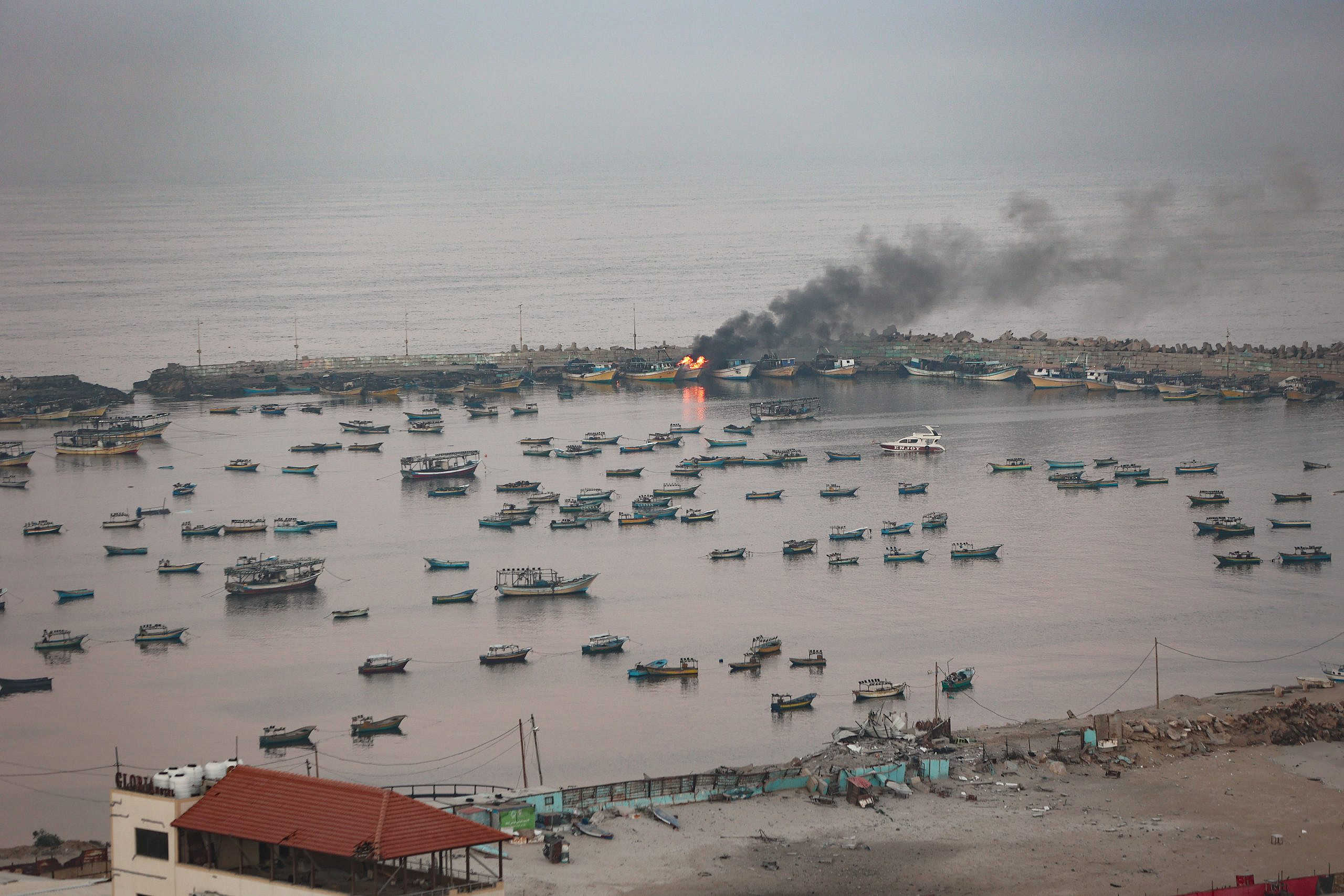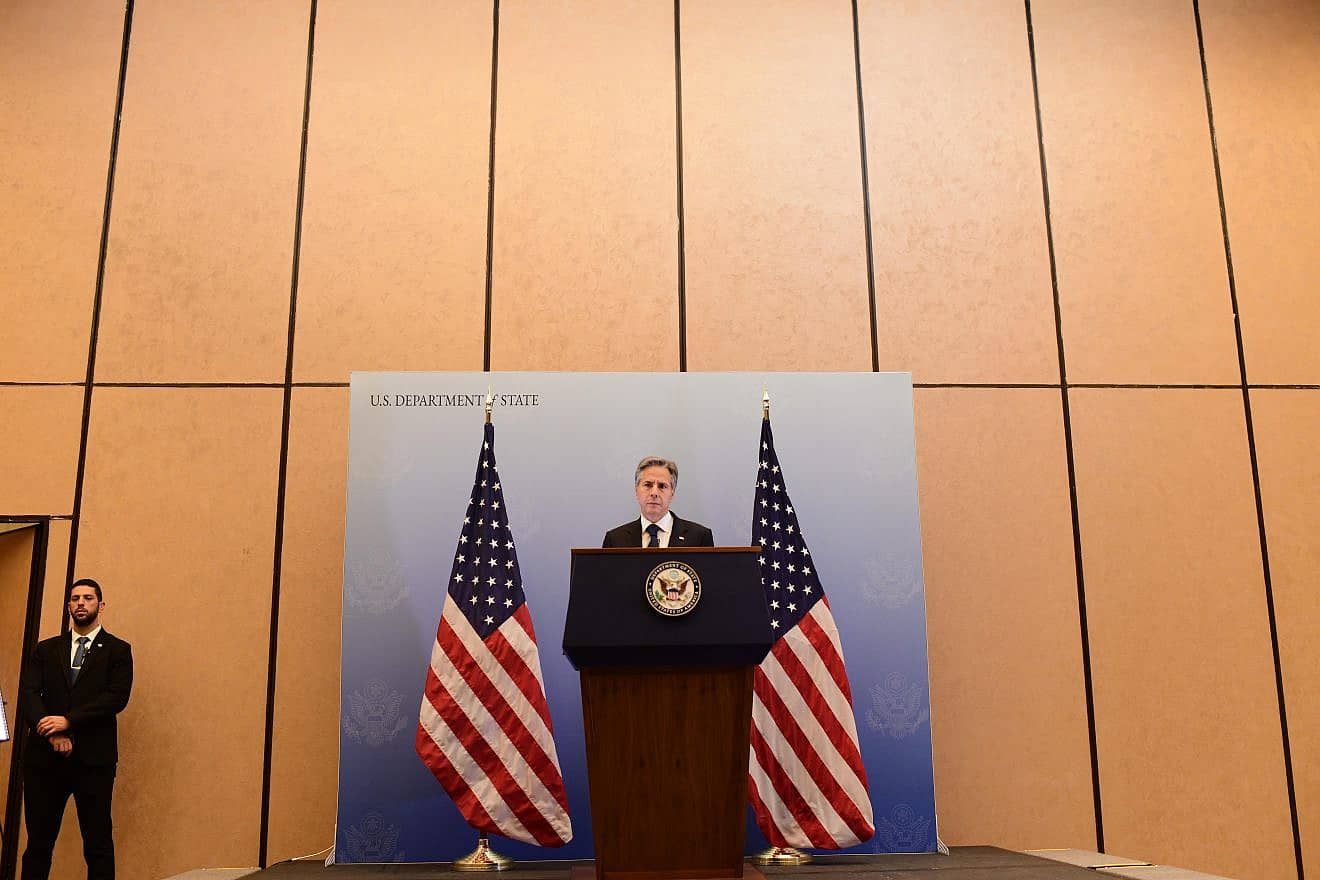The United States has taken a strong stance on Israel’s war against Hamas in Gaza. U.S. Secretary of State Antony Blinken arrived in Israel on Thursday in a show of solidarity. At the start of their meeting, Israeli Prime Minister Benjamin Netanyahu thanked Blinken for his statement: “We are here; we are not going anywhere.”
In a meeting at the White House with American Jewish leaders Wednesday, U.S. President Joe Biden called Hamas’s atrocities “sheer evil” and warned Iran against attacking Israel through its proxy Hezbollah.
At the same time, to deter Iran from activating Hezbollah in Lebanon, the Pentagon instructed the USS Dwight Eisenhower aircraft carrier to join the USS Gerald R. Ford aircraft carrier in the Eastern Mediterranean.
But this support comes after years of American pressure on Israel to go soft on Hamas and the Palestinians, and to avoid “disproportionate” responses to terror.
Additionally, the United States has spent the last decade appeasing Iran through the 2015 Iran nuclear deal (the Joint Comprehensive Plan of Action) and has provided the Iranian regime with billions of dollars.
According to Blaise Misztal, vice president of policy at JINSA, “through under-enforcement of sanctions and the unfreezing of funds, U.S. policy has allowed Iran to reap tens of billions of dollars more in revenue than it would have otherwise.”
Misztal noted that while we don’t know whether the Hamas terrorists that attacked Israel on Oct. 7 benefited from this funding, “it very well might have given the Tehran regime’s genocidal intent.”
He added that “it is certainly the case that Iran has not funneled the windfall it has received due to America’s accommodationist policy to improve the well-being of its people, and has used it instead to advance its nuclear program and arm its regional proxies.”

‘It’s an American interest’
With this in mind, Biden’s statement to the press on Tuesday was telling as he appeared to announce a new U.S. attitude towards the war in general and some of the participants in particular.
Eytan Gilboa, an expert on U.S.-Israel relations at Bar-Ilan University in Ramat Gan and a senior fellow at the Jerusalem Institute for Strategy and Security, noted to JNS that Biden’s most important message was the one he sent to Hezbollah, Iran and Syria.
“The message is that if you participate seriously in the war, you will meet American power,” Gilboa said.
“This is also related to his definition of the challenge,” he added. Biden said the threat “is to American security and world peace, and he compared Hamas to ISIS.”
Gilboa seemed impressed by the lengths the president went to in his speech to condemn Hamas and support Israel.
“I’ve never seen any American president promising this kind of commitment,” he said. “It never happened.”
According to Gilboa, Biden’s other message is that “the means to be used against Hamas and Palestinian Islamic Jihad (PIJ) is similar to the means used against ISIS: less restrictions, less consideration for humanitarian issues and serious attempts to destroy [both].”
“This was an important statement on American foreign policy,” he emphasized.
America agrees with Israel that it is fighting Iran in Gaza through its proxy, Hamas, and in Lebanon through its other proxy, Hezbollah.
“Biden wants to show that he is a strong leader of the Western world,” Gilboa said. “He organized the home base—the substantial support in Congress—as well as internationally.”

The United States, the United Kingdom, Germany, Italy and France issued statements highly critical of Hamas in support of Israel.
According to Gilboa, Biden’s statement on Tuesday “ushers in a major strategic change in the American attitude towards Iran. Now, it is an all-out war against Iran and its participation in the anti-American axis.”
“Everything here is connected to everything else, such as the war in Ukraine,” he said. “It’s an American interest.”
“Cooperation between Israel and the U.S. should not be interpreted as Israeli weakness or Israeli inability,” he emphasized. “It should be interpreted as a common interest in defeating a much larger axis where Iran is a central component.”
Gilboa recommended looking at how Russia and China responded to the massacre.
This explains Biden’s messaging.
Israel’s war against Hamas (Iran) in the Gaza Strip is an extension of a much larger regional war that includes Iran, Russia and China, and for this reason, the United States has become deeply involved in the conflict.
America’s involvement, however, should not come as a major surprise.
Gilboa emphasized that for years, Israel and the U.S. have conducted joint military exercises for exactly this type of scenario.
He said that Russian President Vladimir Putin “wants to strengthen his axis, which includes Iran and China. If you look at the responses of Iran, Russia and China, you can see the axis and better understand what the U.S. is doing.”


























